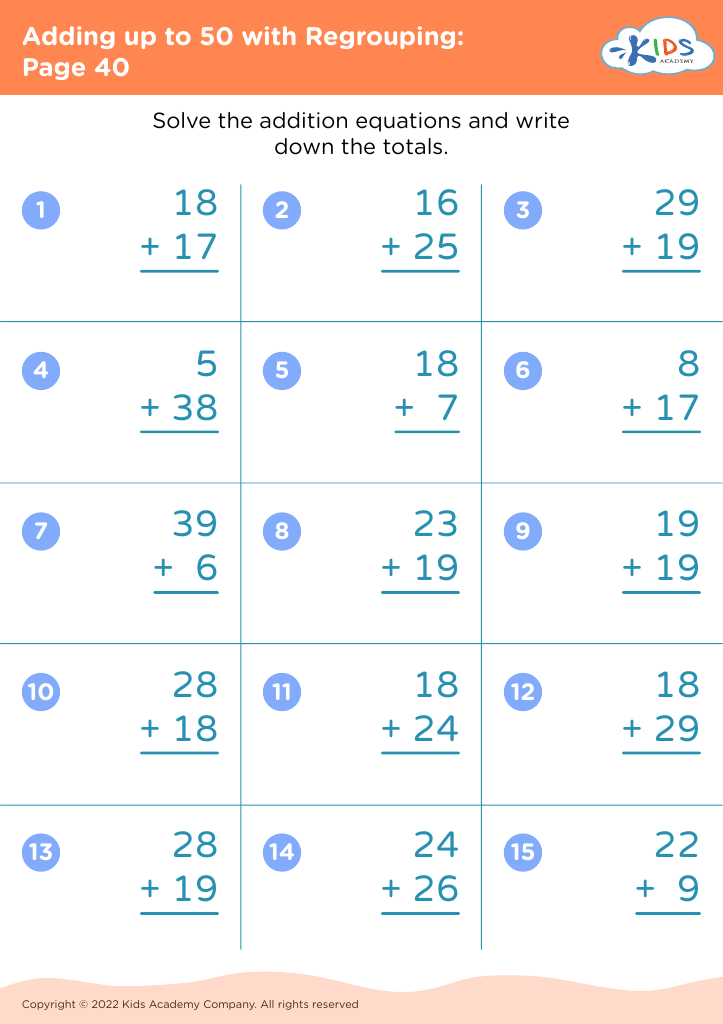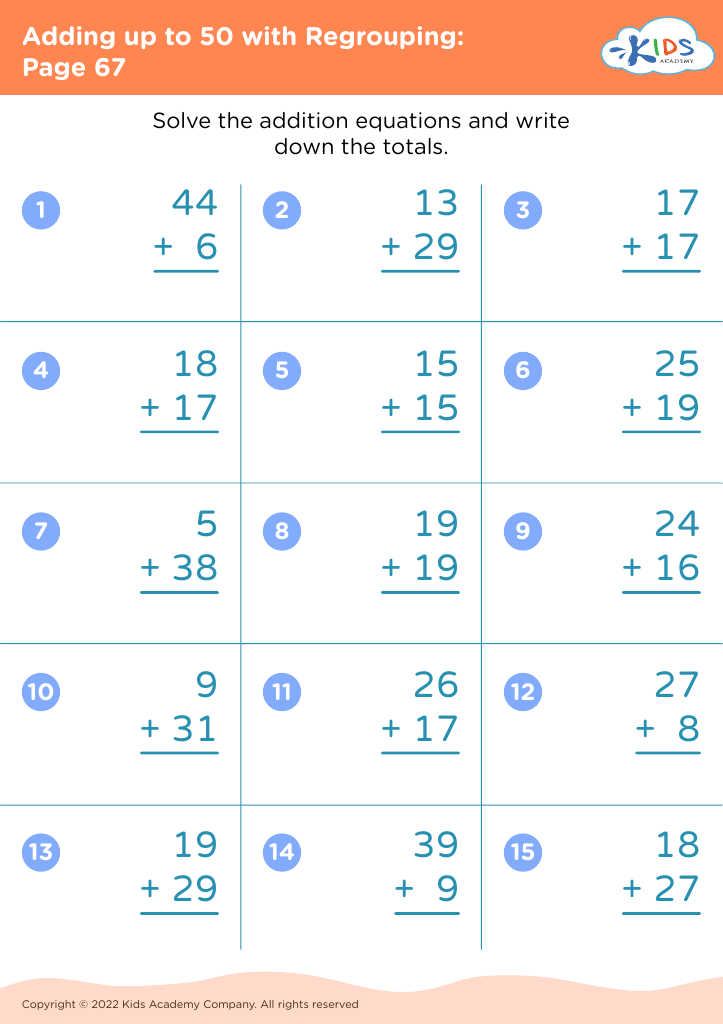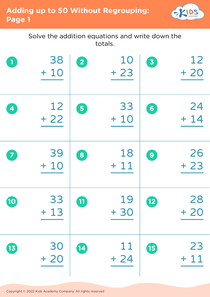Fraction simplification Adding up to 50 with Regrouping Worksheets for Ages 4-7
8 filtered results
-
From - To
Explore our engaging "Fraction Simplification Adding Up to 50 with Regrouping Worksheets," specially designed for children aged 4-7. These worksheets introduce young learners to the foundations of fraction simplification while practicing addition skills up to 50. With a focus on regrouping techniques, children will enhance their mathematical understanding through fun, colorful exercises that promote independent learning. Our interactive approach encourages critical thinking and problem-solving as students tackle visually appealing problems tailored to their developmental stage. Perfect for enhancing classroom learning or home practice, these worksheets make math enjoyable while building essential skills for future academic success. Dive in and start simplifying fractions today!
Parents and teachers should prioritize the concepts of fraction simplification and addition with regrouping when teaching children ages 4-7 because these foundational skills are critical for their mathematical development. At this stage, children are building not only their numerical understanding but also their problem-solving and critical thinking abilities.
Understanding fractions introduces children to the idea of parts of a whole, enhancing their ability to visualize and analyze numbers in various forms. Simplifying fractions equips them with the skills to compare quantities and helps lay the groundwork for more complex mathematical concepts in the future.
Regrouping in addition reinforces the concept of place value and enhances their ability to manage larger numbers. As they learn to add numbers up to 50 with regrouping, they develop strategies for finding sums that can make arithmetic easier and more efficient.
These skills foster confidence and a positive attitude toward math, ensuring that children are well-equipped for academic success. Additionally, both fraction simplification and regrouping encourage a deeper comprehension of how numbers work together—a vital component for advancing in mathematics later in their education. By supporting these core concepts, adults can help nurture learners who are proficient and comfortable with mathematics.



















